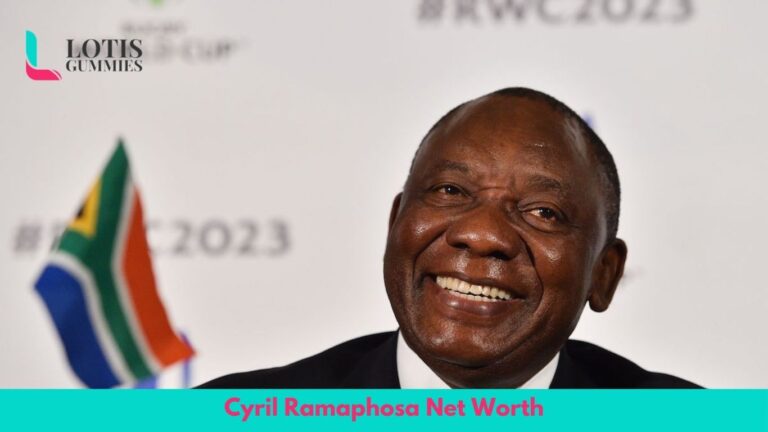Cyril Ramaphosa was born on November 17, 1952, in Soweto, Johannesburg, to Venda parents Erdmuth and Samuel. Growing up as the second of three children, Ramaphosa attended Tshilidzi Primary School, Sekano Ntoane High School, and Mphaphuli High School. His journey into activism began during his time at the University of the North in Limpopo Province, where he became deeply involved in student politics. His activism led to solitary confinement in 1974 and 1976 for organizing pro-FRELIMO rallies, reflecting his early commitment to social justice and political change.
What Was Ramaphosa’s Role in the Labor Movement?
Ramaphosa’s legal career was marked by significant contributions to the labor movement. After earning his law degree, he joined the legal department of the Council of Unions of South Africa as an advisor. In 1982, he founded the National Union of Mineworkers (NUM) and became its first secretary general. Under his leadership, NUM grew into a powerful organization, spearheading some of the largest strikes in South African history and playing a pivotal role in the anti-apartheid movement. This period cemented Ramaphosa’s reputation as a formidable leader and advocate for workers’ rights.
How Did Ramaphosa Influence the African National Congress?
In 1991, Ramaphosa transitioned from labor activism to a broader political stage by resigning from NUM to become the secretary general of the African National Congress (ANC). His efforts were crucial in the negotiations that ended apartheid and led to South Africa’s transition to democracy. Following the country’s first fully democratic elections in 1994, Ramaphosa was elected as a Member of Parliament and chaired the constitutional assembly, significantly contributing to the drafting of South Africa’s new constitution.
What Led Ramaphosa to Venture into Business?
In 1996, Ramaphosa made a significant shift from politics to business by founding the Shanduka Group, an investment holding company. Shanduka’s diverse portfolio included interests in mining, finance, real estate, and banking. Notably, the company owned McDonald’s South Africa and held significant stakes in Coca-Cola bottling plants. In 2011, the Chinese Investment Corporation acquired a 25% stake in Shanduka for $245 million. By 2015, Shanduka was sold to the Pembani Group, netting Ramaphosa an estimated $200-300 million, underscoring his successful transition into the business world.
Why Did Ramaphosa Return to Politics?
Despite his business success, Ramaphosa returned to the political arena in 2012, being elected as the deputy president of the ANC. His re-election in 2014 solidified his political influence, leading to his appointment as South Africa’s deputy president. In this role, Ramaphosa chaired the National Planning Commission and represented South Africa at the World Economic Forum in Davos. His return to politics was driven by a desire to address corruption and economic challenges within the country.
How Did Ramaphosa Become President of South Africa?
Ramaphosa’s political journey reached its peak in December 2017 when he was elected president of the ANC, running on an anti-corruption platform. In February 2018, following President Jacob Zuma’s resignation, Ramaphosa assumed the presidency of South Africa. His first State of the Nation Address emphasized economic growth, youth employment, and tourism. He also reduced the size of the Cabinet, removing many holdovers from Zuma’s administration, signaling a new direction for the country.
What Are Ramaphosa’s Key Economic and Social Policies?
As President, Ramaphosa has focused on economic reform and land redistribution. He has taken steps to legitimize South Africa’s cannabis industry and established the Youth Employment Service to combat youth unemployment. During the COVID-19 pandemic, Ramaphosa implemented effective safety measures that were widely praised. However, his administration has faced criticism, particularly regarding alleged corruption related to the Phala Phala robbery in 2020.
What is Known About Ramaphosa’s Personal Life and Wealth?
Cyril Ramaphosa’s personal life is as multifaceted as his career. He was married to Hope from 1979 to 1989, with whom he had a son. He then married Nomazizi Mtshotshisa from 1991 to 1993. In 1996, he married physician Tshepo Motsepe. Ramaphosa is believed to have five children. His wealth includes a luxury mansion in Cape Town’s Lion’s Head and ownership of 30 properties worldwide, reflecting his substantial financial success.
How Did Ramaphosa Build His Business Empire?
Ramaphosa’s financial success is largely attributed to his business acumen. The Shanduka Group’s diverse portfolio included significant stakes in the mineral resources, insurance, and real estate sectors. Ramaphosa also served on various boards, including MTN, Bidvest, and Mondi, further enhancing his financial standing. His acquisition of the McDonald’s South Africa master franchise agreement in 2011 exemplified his strategic business moves.
What Are Some Controversies Surrounding Ramaphosa?
Despite his achievements, Ramaphosa’s career has not been without controversy. The Phala Phala robbery incident led to accusations of kidnapping and bribery. Critics have also questioned his handling of corruption within the ANC and his administration. Nonetheless, Ramaphosa remains a significant figure in South African politics and business, with a legacy that reflects his complex journey from activism to the presidency.
What is Ramaphosa’s Legacy?
Cyril Ramaphosa’s legacy is a complex blend of activism, business success, and political leadership. His efforts in ending apartheid and shaping South Africa’s democracy are widely acknowledged. As President, his focus on economic reform and social issues reflects his commitment to improving the lives of South Africans. Ramaphosa’s journey from a young activist in Soweto to the highest office in the nation underscores his resilience and dedication to his country.

